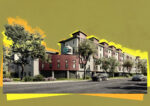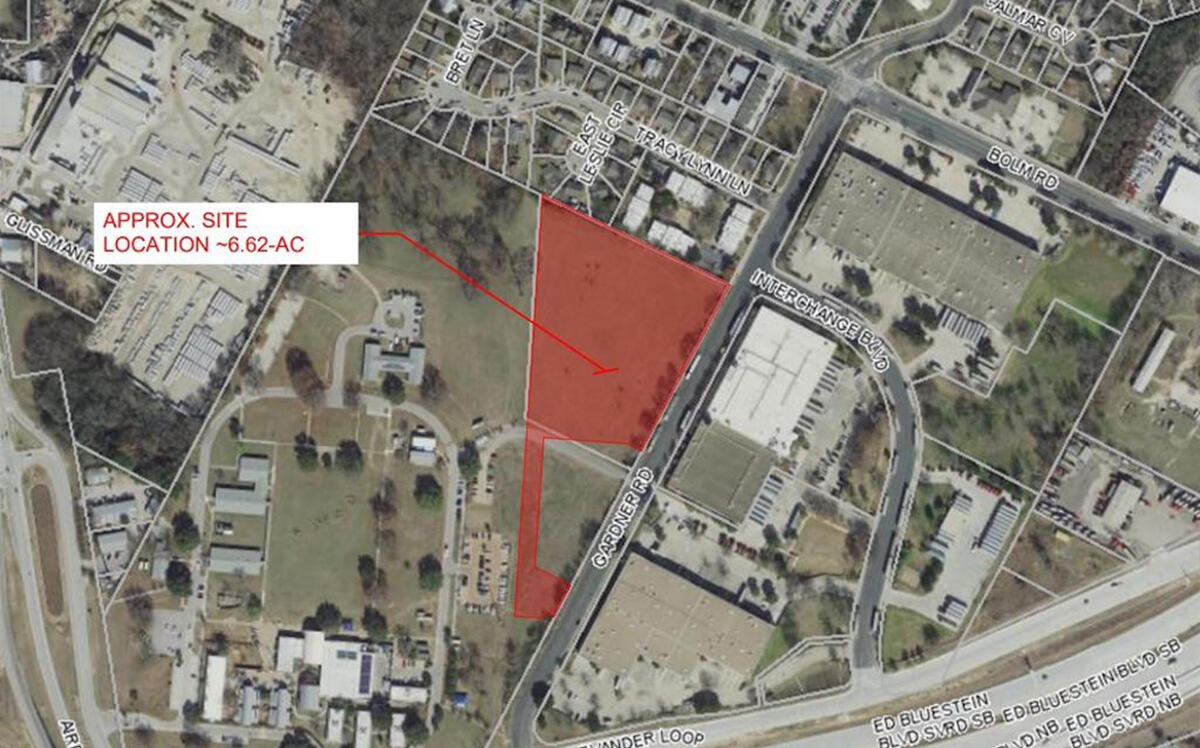A partnership between Austin, a Missouri-based developer and a local nonprofit could bring a new affordable housing complex to one of Austin’s poorest neighborhoods.
The proposal for 900 Gardner Road, called Libertad Austin, would comprise nearly 53,000 square feet of apartments across three four-story buildings on nearly 7 developable acres, the Austin Business Journal reports. A site plan filed with the City of Austin didn’t include the number of units or affordability breakdown.
The Austin Housing Finance Corporation, a subsidiary of the City of Austin, is partnering with Missouri-based Vecino Group and nonprofit Caritas of Austin on the project.
About 16,000 square feet are planned for two buildings, and about 21,000 feet for a third. Building heights up to 140 feet are allowed on the property.
Read more



900 Gardner Road (City of Austin)
The proposed complex would sit on 36 acres, but only a portion is developable. It’s adjacent to a public health campus and the City of Austin Vital Records.
A 2020 presentation about the property showed ideas for a mix of housing types, including for-sale single family homes, and for-rent duplexes and low-rise apartments.
The site is in one of the city’s poorest zip codes, 78721, where the median household income is just over $55,000, compared with about $99,000 for all of Travis County.
Voters in Austin, where incomes are failing to keep up with housing costs, approved a $350 million bond for affordable housing in the November election. It is the biggest housing bond in the city’s history. Besides that, Austin also attracts affordable development via its Affordability Unlocked program, which offers a scale of density bonuses for providing some affordable housing.
— Rachel Stone
